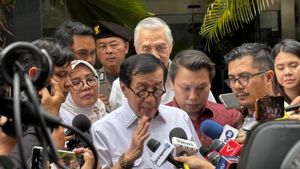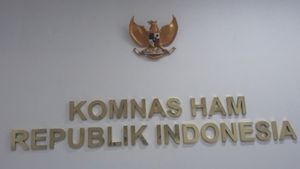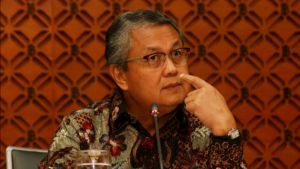YOGYAKARTA - In Indonesian democracy, regional head elections, or regional elections, are important events where citizens choose their leaders at the local level, such as governors, regents, and mayors. The neutrality of the state civil apparatus (ASN) and government officials is very important in this process to maintain justice and integrity of the Pilkada.
Rules governing the participation of officials in the Pilkada campaign, including penalties that may be imposed on those who violate, will be discussed in this article. Curious about officials' rules for participating in the regional election campaign? Listen to the end, yes regarding the 2024 election!
Background Netrality Of Officials In Pilkada
The neutrality of ASN and government officials in the Pilkada is guarded through various laws and regulations aimed at preventing abuse of authority, conflicts of interest, and intervention in the democratic process.
As public servants, government officials are required to maintain the integrity and trust of the community by not taking sides with any of the candidates or political parties in the Pilkada.
Maintaining this neutrality is very important to prevent discrimination against supporters of other candidates and ensure all candidates have equal opportunities to compete fairly. Violations of the principle of neutrality can undermine public confidence in the democratic process and result in political instability.
In Indonesia, the participation of officials in the Pilkada campaign is regulated by several regulations, including Law Number 5 of 2014 concerning State Civil Apparatus, Law Number 10 of 2016 concerning Regional Elections, as well as regulations from the General Election Commission (KPU) and the Election Supervisory Body (Bawaslu). Here are some of the main rules that must be obeyed by officials and ASN:
Prohibition of taking sides with Certain Candidates: ASN and government officials are strictly prohibited from showing support or partiality to any of the regional head or political party candidates. This includes a ban on attending campaign events, serving as campaigners, or providing open support on social media.
Prohibition of Using State Facilities: Officials are not allowed to use state facilities or government resources for campaign purposes. For example, the use of official vehicles, offices, or government-owned communication tools for campaign purposes is a serious violation.
Prohibition of Using Position Influence: Officials are not allowed to use the influence or power of their positions to benefit or harm one of the candidates. This includes giving orders to his subordinates to support or reject certain candidates, or use government budgets for activities that benefit one party in the Pilkada.
Campaign Leave for Advanced Officials as Candidates: Officials running for regional heads are required to take time off during the campaign period. The goal is to ensure that they do not use their position for personal interests or harm other candidates. During leave, they are prohibited from using state facilities and must remove all attributes of office.
The obligation to Report: Officials involved in the campaign (for example as members of the campaign team) must report to Bawaslu and the KPU. This is done to ensure that campaign activities are carried out transparently and do not violate the applicable rules.
Sanctions For Violating Officials
Violations of the rules of neutrality of ASN and officials in the Pilkada can result in administrative, criminal, or disciplinary sanctions. Some of the sanctions that may be imposed include:
Administrative sanctions: ASN or officials who violate the rules of neutrality may be subject to administrative sanctions, such as warnings, demotion, or even dishonorable dismissal. This sanction is regulated by the State Civil Apparatus Commission (KASN) and related personnel agencies.
Criminal sanctions: If violations involve abuse of authority or state facilities, the official concerned may be subject to criminal sanctions. For example, the use of the government's budget for campaigns can be considered a criminal act of corruption and the perpetrator can be tried in court.
SEE ALSO:
Prospective Disqualification: If a violation of the neutrality of ASN or officials is committed to benefit certain candidates, the candidate may be subject to disqualification by the KPU. This means that the candidate cannot continue his candidacy in the Pilkada.
So after knowing the rules for officials to participate in the regional election campaign, see other interesting news on VOI.ID, it's time to revolutionize news!
The English, Chinese, Japanese, Arabic, and French versions are automatically generated by the AI. So there may still be inaccuracies in translating, please always see Indonesian as our main language. (system supported by DigitalSiber.id)
















